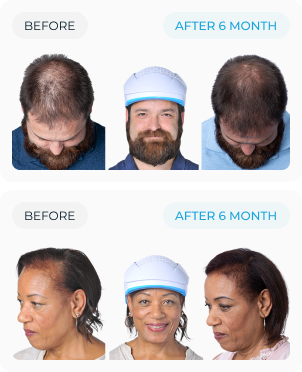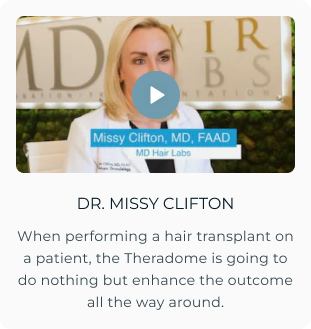Rosemary oil has become a viral sensation in the world of haircare, with social media users praising it as a natural remedy for hair growth and thinning hair. But does it actually work?
As more people turn to rosemary oil in hopes of achieving fuller, healthier hair, it’s worth taking a closer look at the science behind the hype. In this guide, we’ll explore what the research really says about rosemary oil’s effectiveness for hair growth.
What Is Rosemary Oil?
Derived from the aromatic leaves of the rosemary plant, rosemary oil is a concentrated essential oil known for more than just its role in the kitchen. While many recognize rosemary as a flavorful culinary herb, its oil has a long-standing history in traditional medicine and skincare.
Beyond its pleasant scent, rosemary oil is believed to offer a variety of health benefits, from supporting brain function and reducing inflammation to delivering powerful antioxidant effects. And now, it’s gaining attention for its potential role in hair and scalp health.
How Is Rosemary Oil Applied to Hair?
Rosemary oil to encourage hair regrowth is typically applied in a few ways:
- Scalp massage with diluted oil: One of the most common methods involves diluting a few drops of rosemary oil with a carrier oil and massaging the blend directly into the scalp.
- Put into store-bought hair products: Some people try to boost their current haircare routine by adding a few drops of rosemary oil to their favorite shampoo, conditioner, or hair mask.
- Incorporated into homemade haircare: DIY enthusiasts often include rosemary oil in homemade shampoos or treatments.
Disclaimer: None of these methods are scientifically proven to grow hair or stop hair loss. But, rosemary oil may support a healthy scalp and could potentially improve the effectiveness of real growth methods like low-level laser therapy (LLLT), minoxidil (Rogaine®), or finasteride (Propecia®).
What Are The Precautions for Rosemary Oil?
Although rosemary oil is a natural product, “natural” doesn’t always mean risk-free. As a highly concentrated essential oil, it can result in adverse reactions.
Overuse or applying undiluted rosemary oil directly to the scalp can lead to skin irritation and even damage hair follicles, contributing to hair loss. As such, individuals with sensitive skin or other dermatological conditions should be especially cautious. It’s also crucial to keep the oil away from the eyes, where it can cause significant harm.
If you're pregnant or breastfeeding, it’s best to avoid rosemary oil altogether, as its safety during these times hasn’t been well studied and it may trigger allergic reactions or worsen existing conditions.
Lastly, keep in mind that essential oils, including rosemary oil, are not regulated by the FDA for purity or quality.
Can Rosemary Oil Treat Hair Loss?
Rosemary oil is generally promoted as a remedy for hair loss due to its possible anti-inflammatory, antimicrobial, circulation-boosting, and nerve-regenerating properties. However, again, there are no proven clinical studies confirming rosemary’s oil effectiveness in this area, and it’s important to understand that hair loss has a wide range of causes, including:
- Genetic predisposition
- Hormonal changes (such as during menopause)
- Certain medications (e.g., for depression)
- Chronic stress
- Nutritional deficiencies or rapid weight loss
Because hair loss is so complex and varies from person to person, the evidence supporting rosemary oil as a reliable treatment remains limited. More research is needed to determine when, and for whom, it’s effective.
Additionally, there’s little data on how rosemary oil interacts with other hair loss treatments, making it difficult to assess its safety and efficacy when used in combination with medical therapies.
Does Rosemary Oil Help Hair Growth?
Some early research suggests rosemary oil might have potential benefits for hair growth, but the evidence is still preliminary.
A frequently referenced 2023 study in mice showed that a hair lotion containing rosemary oil appeared to enhance hair growth, improving factors like strand thickness, length, and overall appearance.
Similarly, a 2016 study found that rosemary oil increased blood flow and skin health in rats—effects which, in theory, could support a healthier scalp environment in humans.
That said, findings from animal studies don’t translate to human results, so these aren’t conclusive. In essence, more large-scale clinical trials involving human participants are needed to confirm whether rosemary oil can reliably promote hair regrowth.
Theradome: A Proven Alternative to Rosemary Oil for Hair Regrowth
Despite rosemary oil generating a buzz as a natural remedy for hair growth, the scientific evidence behind its effectiveness is scarce. Most studies to date have been conducted on animals, and without FDA oversight on essential oils, concerns around quality and safety persist.
In contrast, LLLT, also known as laser phototherapy (LPT), is a well-researched, FDA-cleared solution for stimulating hair growth. This non-invasive treatment works by energizing hair follicles, improving blood circulation, and encouraging thicker, fuller hair. One of the most trusted names in this space is Theradome.
Theradome has two innovative devices: The Theradome PRO LH80, which is 60x more powerful than other LPT devices to deliver maximum scalp coverage for deep follicle stimulation and optimal results. And, the EVO laser hair growth device, a more affordable option that’s 30x more powerful than other LPT devices, designed to provide effective treatment for those looking to get started with laser hair therapy.
Both devices are cordless, lightweight, and designed for comfortable at-home use. With no known side effects and a reported 98% customer satisfaction rate, Theradome offers a safe, clinically-backed alternative to rosemary oil.

























